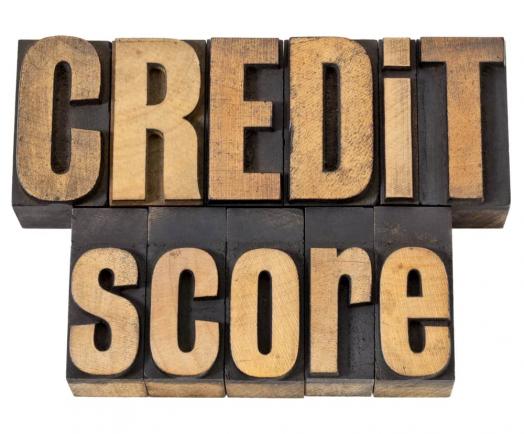
Your credit score holds an important position in your family's financial life. Having a good score can save you thousands of dollars in better interest rates on auto and mortgage loans. Having a bad score can cause high interest rates, higher insurance premiums and even difficulties getting a job. For many, the process of calculating an individual's credit score may seem arbitrary. Someone who may be a good credit risk overall can unknowingly make a small mistake and temporarily bring his score down.
MyFICO derives your credit score from information from your credit report which records the relationships you have with each financial institution such as your credit card, auto loan, mortgage, etc. Don't worry, though, if you're just establishing your credit history. They generally change the importance of each category to be as fair as practical.
Here is a breakdown of your score and the different factors that affect it:
Payment History (35 percent)
The main focus with this factor is whether or not you make your payments on time. A couple of late payments here and there aren't going to break your score, but if it's a habit, lenders obviously want to know it so they can decide if you are worth the risk. When it comes to those late payments, they will consider how late it was, how much was owed, and how often it happens. Of a more serious nature are things like bankruptcy, foreclosures, lawsuits, and liens.
So what can you do about it? First of all, budget your money to ensure timely debt payments. Do not spend money you do not have. If you feel like you cannot control yourself, it may be better to avoid credit cards. If you do have to make a late payment, examine the circumstances that caused it. Make a plan to ensure it does not happen, again.
Amounts Owed (30 percent)
Rather than the actual amount of money you owe in general, lenders are more concerned with the amount as a percentage of the available credit. If you are close to maxing out your credit card every month, they may see this as a sign that you may struggle to make payments in the future. Another thing to consider is the number of accounts you have with a balance. The more payments you are making, the more likely it is for you to be over-extended. They will also pay special attention to how much you owe on credit cards and installment loans, such as personal or auto loans.
How can you improve on this? If you do not struggle to control your spending, asking your credit card company to raise your credit limit would decrease your utilization ratio and therefore, your overall risk. However, if you do struggle to control credit card usage, it would be better not to use them at all, or to choose one with a very low limit, such as only a few hundred dollars. Maxing this out each month would be significantly better than maxing out a few thousand each month or maxing out several small limit cards from their perspective. Also, consider making more than the minimum payments on your cards and loans.
Length of Credit History (15 percent)
People new to credit, generally teenagers and young adults, may still have a high score depending on how the rest of their credit report looks. But usually a longer credit history will increase your credit score. They will also look at the different accounts you have and how long you have been using them as well as how long it has been since you have used certain accounts.
What can you do? Most importantly, be patient. It takes time to build up your credit history. Be wary of store credit cards that give you a bonus or discount for signing up, or cards that give extra reward points and waive the first annual fee. If you plan on keeping and using these cards over the long-term, it may not be a bad idea. Otherwise, you may end up with a lot of cards you never use or end up canceling to avoid annual fees which could hurt your score.
Types of Credit in Use (10 percent)
This factor is based on the mix of credit you have among different types of accounts like credit cards, installment loans, mortgages, finance company accounts and retail accounts. At 10 percent, it doesn't have a huge impact, but if you're lacking in other areas, this one could be a biggie. Having diversity in credit accounts is favorable, but opening accounts for diversity's sake and not using them can negate that benefit.
With this factor, having no credit cards is worse than having cards and using them responsibly. Again, if you have control issues, it would be better to have none since this doesn't hold a huge weight in the calculation. But if you can handle it, paying off your credit cards each month can give you an extra boost.
New Credit (10 percent)
If you have little credit history, opening up several accounts in a short amount of time can have a large negative effect on your score. Even if you have a long credit history, opening a new account will lower your average account "age"� and can lower your score. Also, there is a myth that applying for new credit lowers your credit score. It is true that if you apply for multiple credit cards at the same time, the inquiries on your credit report will lower your score, but this isn't going to happen with auto and mortgage loans when you are shopping for rates.
In conclusion, your credit score can have a great positive or negative impact on your family's financial plan. If you have made mistakes in the past and have a less than desirable score, you can improve your score by understanding the factors that contribute to it and following the recommendations that follow.

